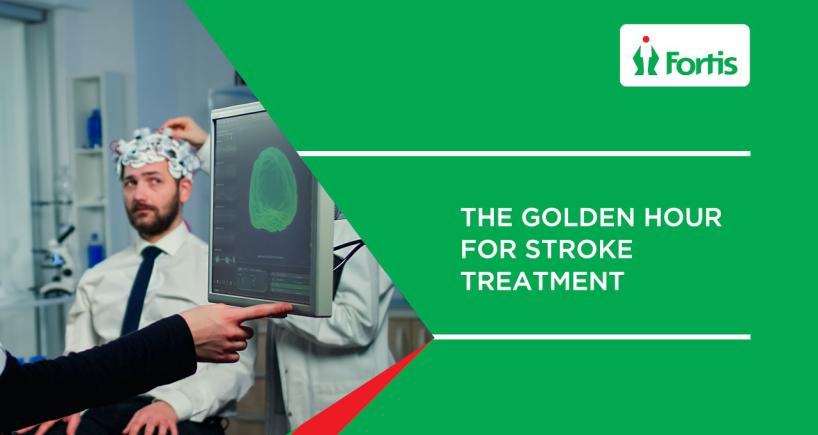
What is Golden Hour Stroke and Its Importance
What is Stroke?
A stroke, more often called a brain attack is one of the most common occurrences and leading causes of death in India. Stroke victims can belong to any age category but are usually observed in the middle-aged. The difference between saving the life of a person suffering from a stroke and a tragic outcome is recognizing the signs and quick action.
Common Symptoms of Stroke
The most common signs of stroke in men and women are sudden weakness or numbness in the face, and upper and lower extremities usually limited to one side of the body. Confusion and trouble in speech or difficulty in understanding speech are also some of the noticeable signs of a stroke. Disturbed vision in one or both eyes and sudden trouble walking, dizziness, and lack of coordination can all be attributed to the onset of a stroke. Although the signs of a stroke often appear suddenly, some people experience symptoms such as headache or numbness several days before the occurrence of a serious stroke. Noticeably, strokes are most likely to occur in the early hours of the morning. Most patients will never feel a stroke coming and almost all do not even know what a stroke is or what it feels or looks like. More commonly mistaken for heart attacks, stroke is actually a brain attack.
While people in your vicinity will notice if you are having a stroke, some strokes have no recognizable symptoms and are often called silent strokes. Although this episode might not be remembered by the patient, permanent damage to the brain would most likely have been caused. The occurrence of one or more silent strokes will result in cognitive and memory problems. The observed symptoms of a stroke largely depend on the extent of the brain tissue that is deprived of blood supply. A mild stroke exhibits itself in the form of weakness of an arm or leg, but a severe stroke could permanently paralyze one side of the body or result in loss of speech. Such changes if not quickly restored via medical treatment can lead to permanent long-lasting defects.
Stroke Golden Hour
The most crucial step while responding to a case of stroke is keeping track of the "golden hour". This time bracket is 60 minutes or less and is the door-to-treatment time of acute ischaemic stroke treatment. This crucial hour is paramount for the medical team to establish a focused diagnostic workup that can rule out any conditions that may mimic a stroke as well as contraindications to the administration of certain drugs. This golden hour is compartmentalized to manage the diagnostic components from the minute the patient experiences the signs and symptoms of a stroke.
- 10 minutes for the patient to reach and be evaluated by the doctor in the ER
- 15 to 25 minutes for the CT scan to be performed
- 45 to 60 minutes for the treatment plan to be established and initiation of required treatment.
Significance of the Golden Period of Stroke
The first hour is considered to be the most crucial or in other terms “golden” because stroke patients have a high chance of survival and prevention of long-term brain damage if they receive medical treatment and drug therapy within the first 60 minutes of the onset of symptoms. A stroke deprives the brain tissue of oxygen causing it to die in as less as four minutes after the onset of a stroke. The death of brain tissue is irreversible and permanent. Early identification and management can prevent long-term disability in almost all cases of stroke.
Neurological Services at Fortis Hospital Kalyan
The neurological team at Fortis Hospital Kalyan recommends that the most common warning signs of stroke must be fully understood and recognised by family members of especially those patients who are at risk of having a stroke. The hallmark symptoms of a stroke are hard to miss and are usually recognized by individuals in the vicinity of the person experiencing a stroke. But other possible signs and symptoms of stroke including disturbances in gait or a sensation of pins and needles anywhere in the body must not be ignored.
Fortis Hospital Kalyan has a 24/7 emergency department that can deal with some of the most complex medical emergencies. A 24/7 CT scan facility is also available that can diagnose any bleeding or clot that can aid in diagnosing multiple neurological conditions. It is recommended to reach the hospital as soon as possible to ensure a stable recovery and prevent complex morbidities. It is crucial to be aware of the most common signs and symptoms of a stroke because this condition can occur in any age category and can appear unannounced.
Categories
Clear allMeet the doctor

- Neurology | Neurology
-
13 Years
-
1400









